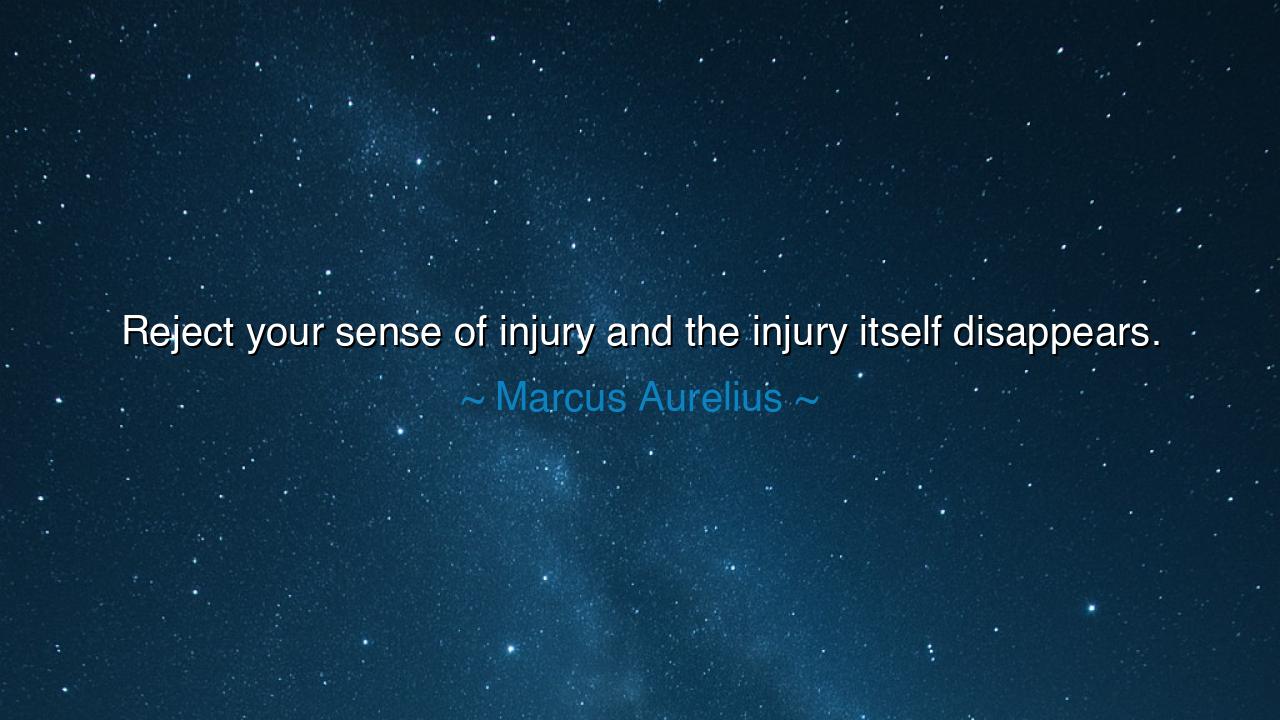
Reject your sense of injury and the injury itself disappears.






Host: The soft glow of the café’s lights bathed the room in warmth, creating a peaceful contrast to the chill of the evening air outside. The sound of distant conversations blended into a quiet hum as Jack and Jeeny sat in their corner, absorbed in their thoughts. Jack, swirling the coffee in his cup, looked up at Jeeny, who had a thoughtful look on her face as she prepared to share something that had caught her attention.
Jeeny: “I came across something today, Jack. A quote from Marcus Aurelius: ‘Reject your sense of injury and the injury itself disappears.’”
Jack: He paused, a slight furrow in his brow. “That’s a powerful statement. Rejecting the sense of injury? So, he’s saying that if we stop feeling hurt, the injury itself goes away?”
Jeeny: She nodded slowly, her voice gentle, but filled with conviction. “Yes, exactly. Aurelius is pointing out that much of the pain we experience isn’t about the things that happen to us, but about the way we react to them. If we can change our mindset — if we don’t let ourselves be victimized by what happens — the injury loses its power over us. It’s about how we interpret the event, not the event itself.”
Host: The silence in the café seemed to deepen, as Jack absorbed the idea that pain, both physical and emotional, might not be as much about the event itself as it is about our interpretation of it. The world outside felt far away now, and inside, Jack’s thoughts began to turn over the idea.
Jack: “So, it’s not the situation that causes the most harm, but the way we let it affect us? That’s tough to accept sometimes, especially when we feel like we’ve been wronged. It’s almost like we have to choose not to let something hurt us — which feels like a lot of responsibility, right?”
Jeeny: Her eyes softened as she considered his point. “It is a tough idea, but I think what Aurelius is getting at is the freedom we have in how we respond to adversity. Yes, it’s about taking responsibility for our reactions, but that responsibility also gives us the power to let go of the pain. If we let go of the anger, the resentment, or the hurt, then it no longer has a hold on us. The injury doesn’t disappear physically, but the emotional and mental burden vanishes.”
Host: The energy in the café shifted as Jack thought more about the concept of emotional control. The weight of Aurelius’ words seemed to settle between them, and the quiet in the café deepened as they explored the power of choice when it comes to how we carry our pain.
Jack: “I guess, if we keep holding onto the sense of injury, it keeps us stuck in the past. But if we let go of that sense of being hurt, we free ourselves from being defined by it. It’s not about ignoring what happened, but not letting it keep us from moving forward.”
Jeeny: “Exactly. It’s about empowerment. The injury, whether physical or emotional, doesn’t have to control how we feel or act. It’s our choice to continue holding onto it. And when we reject that sense of injury, we let ourselves heal and move on.”
Host: The room seemed quieter now, as the weight of their conversation settled into a new understanding. Jack sat back in his chair, the reflection of the idea that injury—emotional injury, at least—could be something that only has power if we give it power. The world outside continued, but inside, the understanding between them felt profound.
Jack: “It’s an empowering thought, isn’t it? That we have the ability to choose how much pain we carry with us. That we don’t have to keep the injury alive by continuously letting it affect us.”
Jeeny: “Yes. It’s about control over our own responses. When we reject the idea of being hurt, we take back our power. And that’s when we can truly heal.”
Host: The night had settled outside, but inside, Jack and Jeeny found clarity in Marcus Aurelius’ ancient wisdom. The injury didn’t have to remain; it was only the sense of injury — the way we clung to it — that kept it alive. And when we could let go of that, the injury itself would fade. In that quiet realization, both Jack and Jeeny understood that true freedom comes not from avoiding harm, but from choosing not to be consumed by it.






AAdministratorAdministrator
Welcome, honored guests. Please leave a comment, we will respond soon